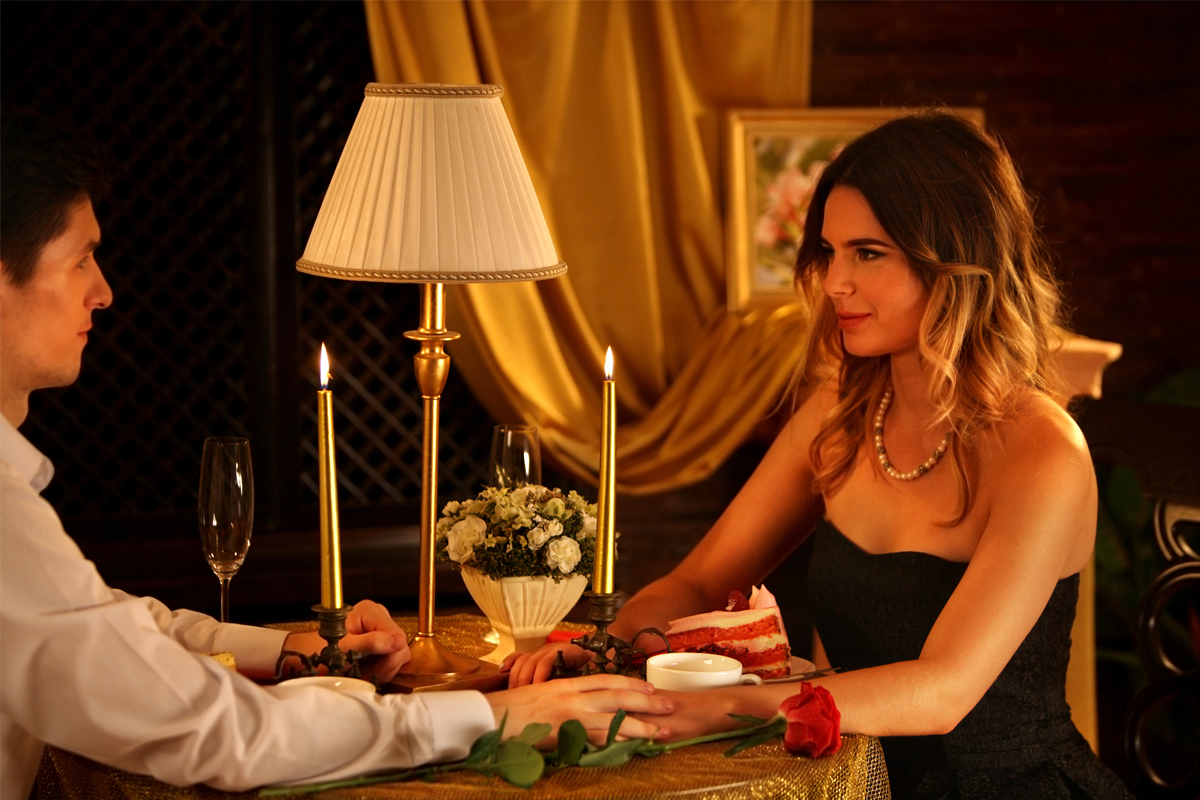How To Fix Any Issue

If you’ve ever been in a relationship, they can be both the best and the worst thing ever. When they are going good, nothing feels better. But when there are issues, life can feel like hell. Most people understand that communication is an essential ingredient to happy relationship. At the same time, most people can’t really communicate very well, especially when it comes to complicated emotional issues.
Assumption Errors
When relationships start out, they start out with tons of built-in assumptions. They aren’t consciously made, but few people have conversations about anything other the exclusivity conversation. Even that decision is often just assumed. Things happen, and both sides kind of assume they are exclusive.
However, when assumptions are made, and then they are broken, this is when the problems start. Your partner behaves in a certain way, and you like it. Then you come to expect it. Then when they stop behaving in that way, it’s easy to feel hurt. Betrayed even. Maybe there’s something wrong and they are too scared to tell you.
Communication Breakdown
Things can easily spiral out of control when both parties realize there are problems, but neither side does anything to address these problems. Or worse, they don’t even acknowledge the problems, which is required before addressing and then solving them. The tendency is to create good feelings on top of the bad feelings in hopes that the source of the bad feelings will go away. These fixes are only temporary.
Requirements Of This Strategy

This strategy will help elicit and define any problem. However, it’s not a magic fix. But you’ll find that eliciting and defining the problem will, in many cases, make the solution self evident. Since many problems are the result of incorrect assumptions, simply bringing issues to the surface will help define and correct these incorrect assumptions.
Responsibility Necessary
This is not a strategy to “fix” the other person. This is not a strategy to make them fix you. This is a strategy that requires you take complete control of the conversation. That you be willing to shoulder the conversational responsibility of eliciting and defining the problem. This isn’t easy. You must be willing to turn off all internal judgement. To turn off all internal feelings of being a victim, and expecting your partner to apologize for any imagined slight.
Help Them Then Teach Them
This strategy is very simple. Once you show your partner how simple it is, it will be easy for them to return the favor when you are having problems and giving them the silent treatment. But you must go first. You must be willing to swallow your pride, swallow any need to be the victim, swallow any need to have them coming to you for forgiveness.
Ideal Situation
This technique is tough to do from a victim standpoint. When you feel slighted by them, and they don’t seem to notice, this isn’t the technique to use. This is best used when you feel or think everything is more or less OK, but you notice your partner is having trouble. Perhaps they are being quieter than normal. Perhaps they are not as responsive to you. Perhaps they are behaving differently, and you aren’t sure why.
Don’t Put The Burden On Them
The usual response in the above situation (you feel fine but you sense your partner has an issue) is to say to them, “What’s wrong?” and expect them to give you a perfectly lucid explanation of what’s bothering them. Often when we are having relationship difficulties, this is simply not possible. Tell them you’d like to try a new technique. One that doesn’t require them to speak. Only to listen to your questions, and choose one of two options.
No Judgement Allowed

You must shut down your ego completely for this to work. You must forget yourself, and only focus on them. Use this technique only to define the problem. Before the problem is fully defined, then wait until later to shift in to problem solving mode, where you both discuss what to do. Until you are at that point, keep expanding.
Adults and Children
When we are children and we are hurt, we expect the adults to come and fix things. The more we transition into the adult world, the more we tend to realize that even when things aren’t our fault, when things happen to us, we must fix them ourselves. When we are in intimate relationships, (sexual and emotional) many of the things that cause us pain tend to make us revert back into the childhood mindset.
The childhood mindset is when we are feeling like helpless victims, incapable of fixing ourselves. For this technique to work, you must force yourself as much into the adult mindset as possible. Allow your partner to temporarily sink into the childhood mindset while you do the work of eliciting and defining the problem.
Address That There Is An Issue
The first step is to get their agreement (they can nod if they like) that there is an issue. Say something like this:
“I think there is something wrong. I don’t know what it is, but you seem to be different. Would you like me to help describe what is wrong? You don’t need to speak. Just let me ask questions, and you can choose one option or the other. Can we discuss this now, or not?”
If They Say Yes
If they say yes, then sit down however you are comfortable. To make it very easy on them, have them sit facing away from you. Tell them you will ask them “either-or” type questions, and all they need to do is nod one way or the other.
Practice With Non Serious Issues

It’s much better to practice this technique beforehand, so you can both get used to it. You don’t need to tell them why you are practicing. They’ll enjoy it, and they will want to reciprocate. It feels very good to be asked these questions by an intimate relationship partner. If you like you can play a game and ask about ideal events or situations. Ideal vacations, ideal movies, ideal TV shows, ideal houses, anything you feel comfortable talking to them about.
Start Simple
You can practice this technique next time you are deciding on what kind of restaurant to go to. For example, let’s say it’s Friday, after work, and neither of you feel like cooking. Tell them you want to play a question game to find out their ideal choice for dinner. You’ll find this is much more fun, and much more enjoyable than, “I dunno, where do you want to eat?”
Either Or Rules

The basic idea is you start very vague. And you give them a choice of two questions, where one of them MUST be a preferred choice. For example, if you asked them:
Would you rather have Chinese food, or Italian food?
This would not be a good either-or question, as they might not like either. This is also not a guessing game, like twenty questions, where you keep lobbing guesses until you get the right one. This is to help them take a vague idea in their mind, and slowly get it more defined. Back to the restaurant choice, you might start off with:
Fast food or sit down and order?
This, of course, requires you’ve already established they would like to go out to eat, rather than staying home. If you aren’t sure, you could start with:
Eat at home or outside?
If the answer is “eat at home,” then the next question could be:
Cook or order something?
But if the answer is “outside,” then you can continue. Remember, always give them two choices, where one choice must be correct. Here are some more suggestions.
Over thirty bucks a person or less than thirty bucks a person?
With or without alcohol?
Inside or outside?
Meat of vegetables?
Chicken or not chicken?
Beef or not beef?
Spicy or not spicy?
Within ten miles or further than ten miles?
The more you practice this, the easier it will get. Of course, when you are talking about eating out, or seeing a movie, then you can be playful. But this same technique is very powerful when talking about deeply troubling emotional issues.
Emotional Issues
When you suspect your partner is having any kind of issue, even if it’s not with you, you can use these same either-or techniques to help them get clear on what the issue is. It’s critically important to not try and guess. Do not rush, only ask either or questions, where one of them must be correct. A safe way to do this is ask, “X or Not X” type questions.
The more time you take doing this, the easier it will be on your partner. Remember, it is your job during this process to be 100% adult, and shoulder the responsibility of helping them define the issues they are having.
Continue To Clarify
As you continue to elicit more of the issue, pause every few set of questions and define what you have elicited so far. Ask them if this is accurate or not (either or). Don’t add any judgement, or descriptions, or anything other then the specific information you have elicited. Don’t read into anything they’ve said. Don’t try and predict how they feel about it.
Pulling Their Pictures Out
Imagine you are pulling a picture out of their mind out into the open. As soon as you try and add your own judgement, or advice, or try and guess what they are going to say next, the picture will shatter. The more you can pull their pictures out of their head, the better they will feel.
You Get Me

This is a very common idea found in many romance movies when a character finally finds true love. A very common trait of the ideal character from the romance movies is they “get” the other character. They truly understand the other character. The see things about the character that no other person sees. This is precisely the feeling this exercise will create. When you take the time to carefully elicit the ideas in their mind, devoid of your own judgement, interpretation or advice, they will truly feel that you get them.
Go Further Once The Issue Is Defined
Once you have a clear idea of what the issue is, ask them if they’d like to talk about what they want to do next. Make it clear your only part is to help them get clear on their own ideas, not add your own to try and tell them your opinion. If they agree, simply continue the same way. Start off by asking if they’d like to do something about this, or simply wait and see what happens. Make sure they know you won’t give any advice, you’ll only help them choose how to respond. Major bonus points if their issue is with you, and you can carefully elicit how they want you to respond.
If The Issue Is With You
Even if the issue is with you, you can help them elicit the problem, and then elicit their opinion on the ideal solution. Once you’ve gotten that far, you can repeat the problem-solution to them like this:
So from what I understand, the problem is X, and you feel the best solution would be Y, is that correct?
X and Y can be very lengthy and detailed descriptions, but so long as you get it in that form, you’re ready to go. Now you’ll need to decide if Y is appropriate or inappropriate. If it makes sense, and you feel it is an appropriate solution to the problem, then you’re finished.
If the you feel the solution is inappropriate, then you’ve got some thinking to do. Ask them if you can think about it for a specific period of time and get back to them. During that time, consider any potential alternatives if any of their ideas don’t seem appropriate.
Useful Relationship Maintenance

This can be a very useful technique to make sure you relationship stays as strong as it can be. Choose to do this periodically on one another on a variety of issues, things that people don’t normally talk about. The wider a range of ideas and themes you use this either-or technique, the more you will “get” each other and the stronger your relationship will go. Anything you can think of is a good theme. Favorite childhood birthday parties, childhood dreams, biggest fears, biggest fantasies, dream vacation, etc.
Relationship Screening Tool
This is also a useful tool to use on a first or second date, just to make sure your potential partner is willing to share some personal things with you. Don’t choose any dangerous topics, keep it simple. A good way to build attraction on a first or second date is to ask about any ideal future topics that you feel is safe to talk about. Asking about a ideal dream vacation is pretty good. Just start off by asking simple either or questions. If they refuse to play the game, then they might mean they have trouble opening up. If they do play the game, this will covertly associate a dream vacation with being with you. Not a bad trick for a first date!
Learn More

Mind Persuasion has plenty of books and courses designed to help you become a superb communicator to get much more out of life.
Mind Persuasion Books
Mind Persuasion Courses